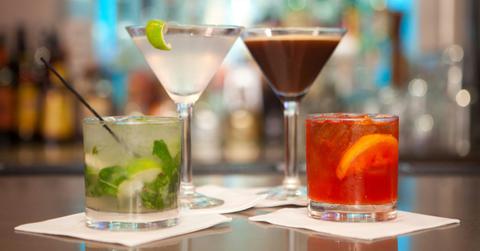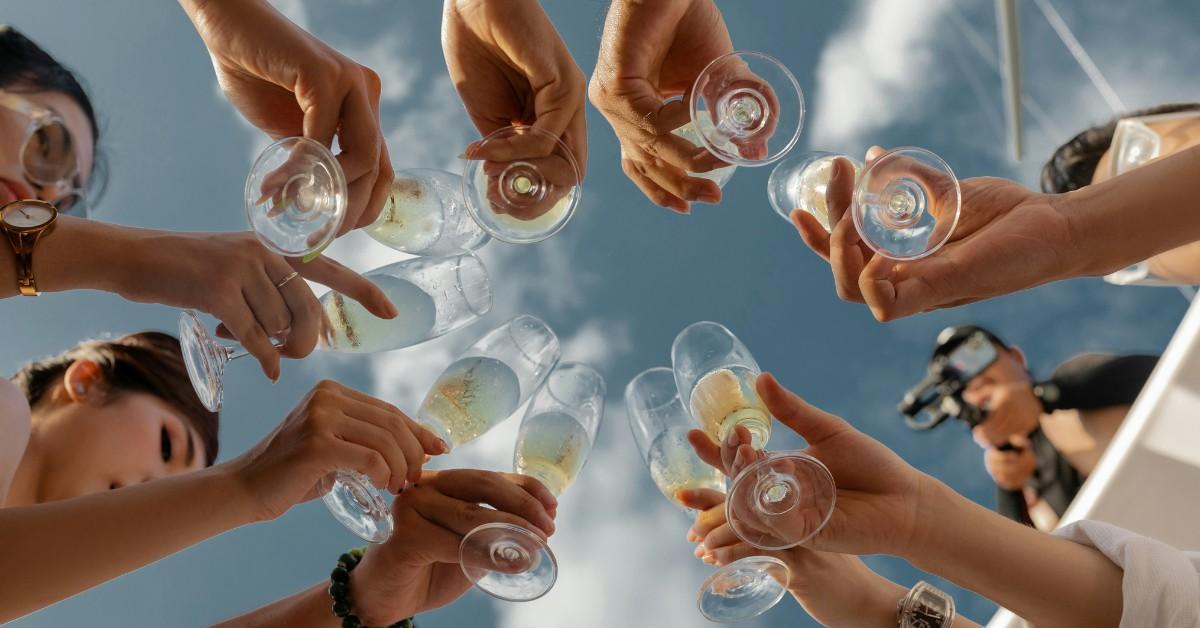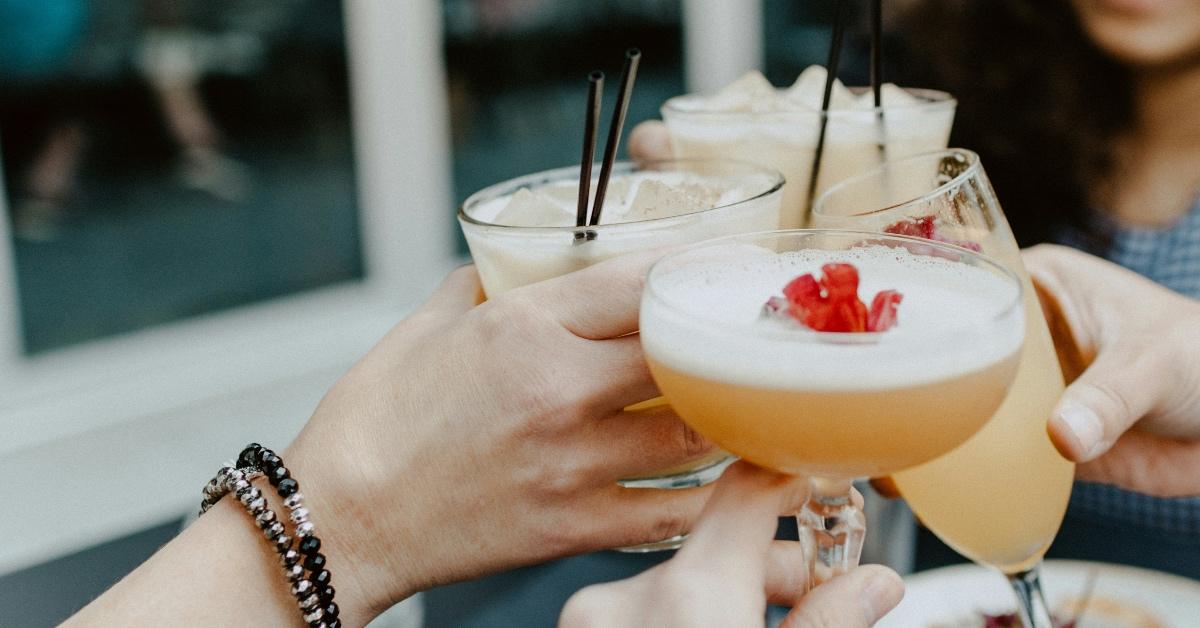Experts Warn This Alcohol Habit Is Far More Dangerous Than Binge Drinking
This type of drinking is more prevalent around the holidays and special occasions.
Updated Dec. 3 2024, 12:24 p.m. ET

Health experts have long advised us of the dangers of binge drinking — something that is marked by women having four or more alcoholic beverages in a sitting and men having more than five in the same period — but now they're growing more concerned about a different pattern of drinking, and it seems more common around the holidays.
The medical community is sounding the alarm over a trend they call high-intensity drinking, which they worry may come along with even more potential for danger than previously imagined.
But what is high-intensity drinking? And how do you know if your alcohol consumption habits fit the bill? Keep reading to learn more.

What is high-intensity drinking?
High-intensity drinking is an occasion where adults consume more alcohol than during a traditional binge-drinking episode, according to the National Library of Medicine (NLM). These occurrences are more likely to take place during celebratory times, which may include holidays, special events like concerts, or birthdays.
Because this terminology is fairly new, there haven't been as many studies conducted around it yet. A study published in the NLM notes that of the studies completed on the topic, teens and young adults are most likely to display these more intense drinking habits.
Unfortunately, the NLM article says that this may set them up for some serious consequences, which can produce both short-term and long-term effects.
For example, those who drink this heavily when they're young are more likely to abuse alcohol as an adult. It appears that those of any age are at an increased risk of experiencing alcohol-related blackouts, engaging in unprotected or unplanned sexual activity, and getting injured while drinking.
An expert who spoke with Newsweek called any situation where someone drinks a lot of alcohol over a short time "extremely dangerous," noting that the human body can only process so much alcohol at once.
"Our bodies can only process roughly one unit of alcohol an hour — and less for some people," Drinkaware CEO Karen Tyrell told the publication. "By drinking a lot quickly, the amount of alcohol in your bloodstream can stop your body from working properly."
It sounds like the pandemic brought this activity to the forefront, according to a study from the University of Southern California, which showed that instances of heavy drinking rose nearly 20% between 2018 and 2020.
Not only did it increase, but the organization's findings seem to indicate that it has remained elevated in the years since, even after most of the conditions that led to elevated alcohol consumption went away, which has created a high-intensity drinking lifestyle for some.
High intensity drinking vs. binge drinking: what's the difference?
The medical community has given the name high-intensity drinking to those occasions when someone consumes double the amount of alcohol that would traditionally qualify as binge drinking, according to Newsweek. So, for a woman, that means drinking eight alcoholic beverages in a sitting, and for men, that number jumps up to 10.
While the difference does seem extreme when you consider the fact that twice as much alcohol has to be consumed for it to constitute high-intensity drinking, it would appear that experts say that people should stay away from both habits as much as they can.
If you or someone you know needs help, use SAMHSA Behavioral Health Treatment Services Locator to find support for mental health and substance use disorders in your area or call 1-800-662-4357 for 24-hour assistance.
